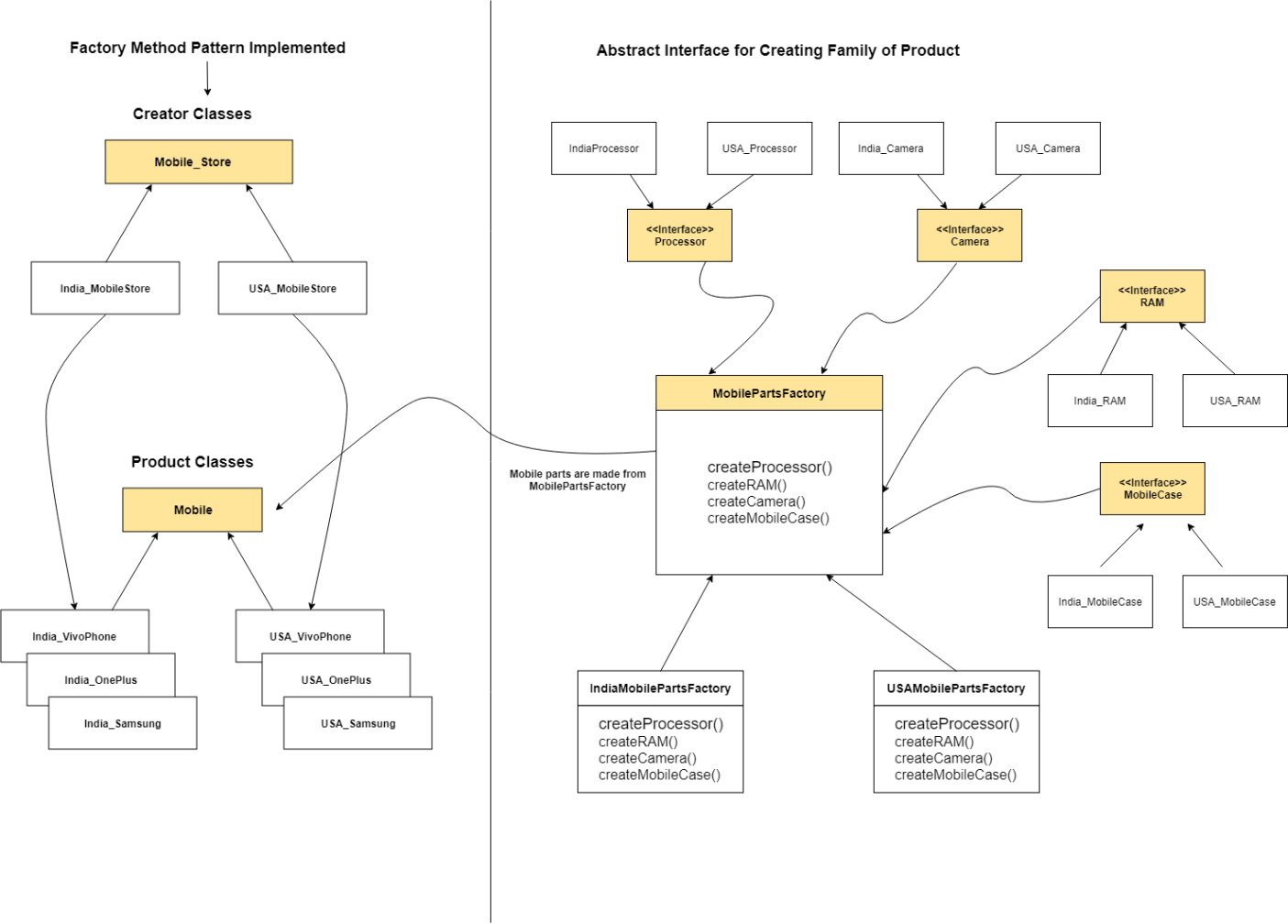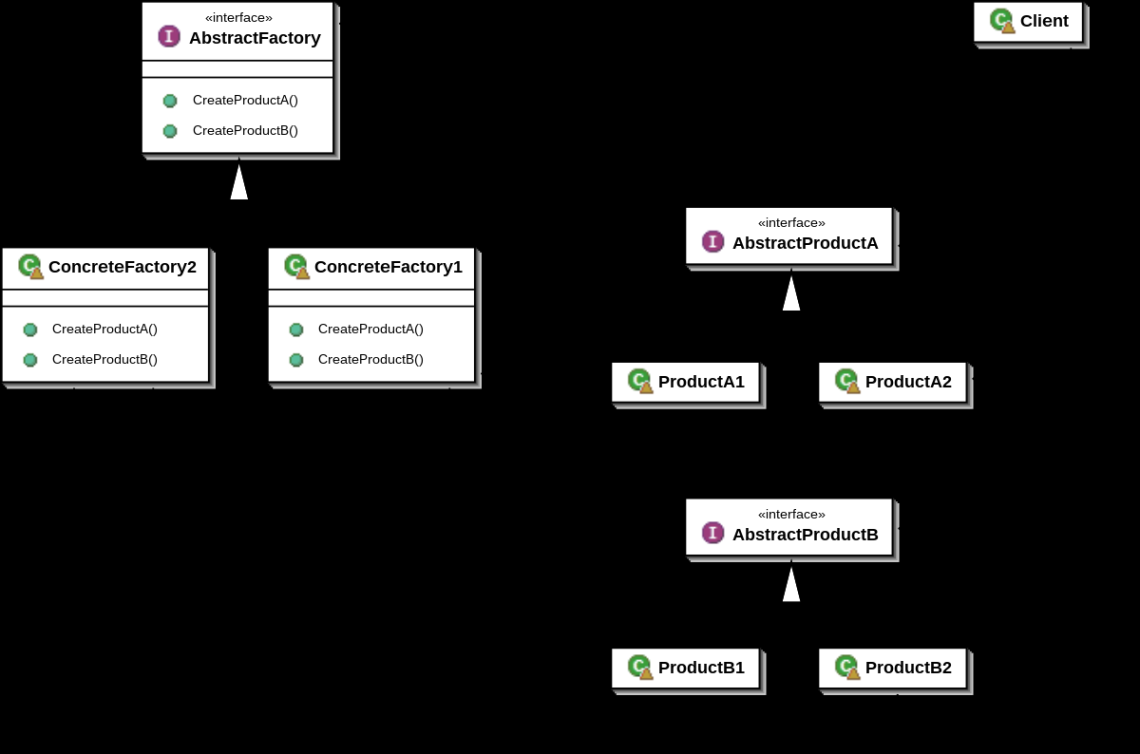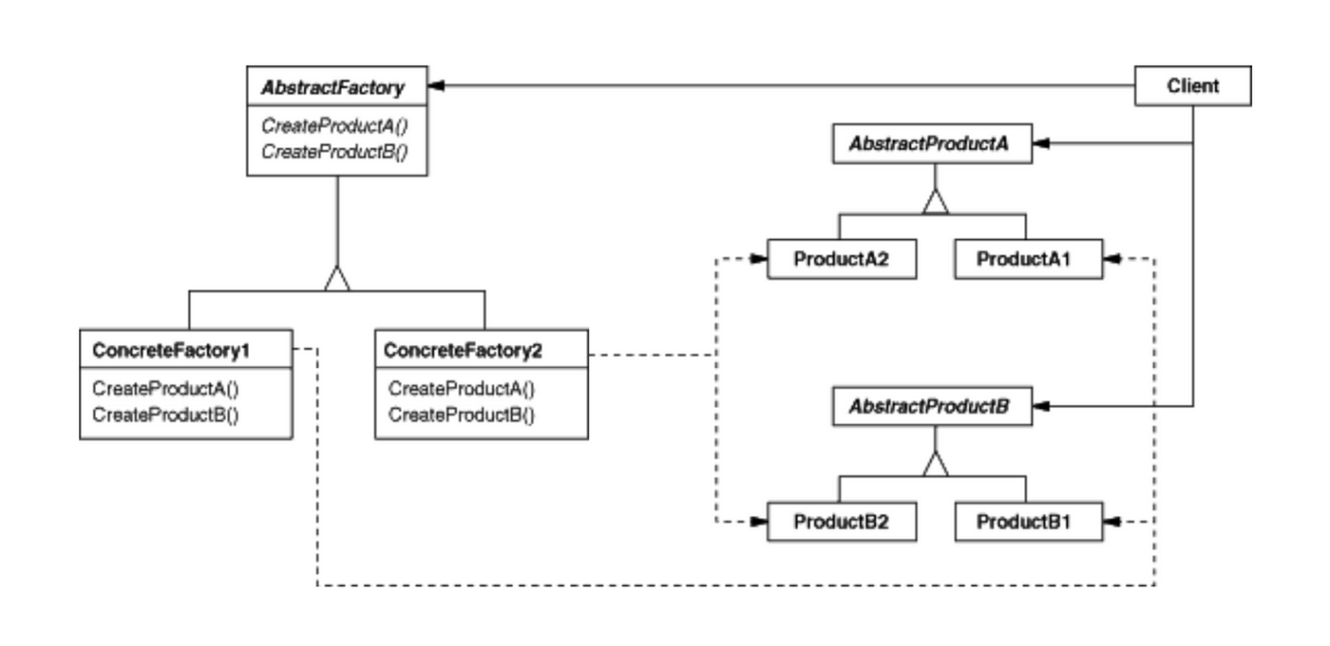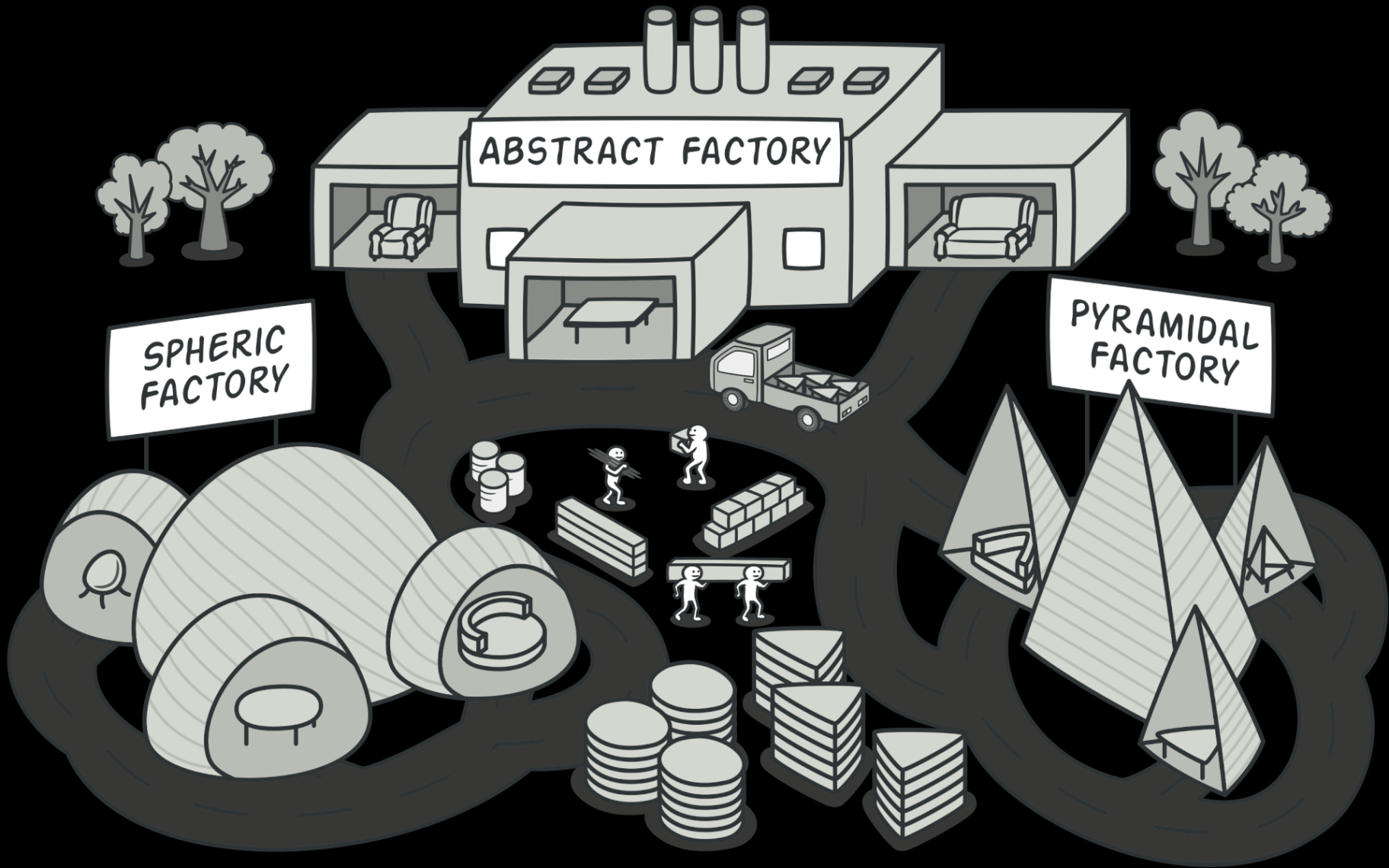Get Creative With Abstraction Design: Simplify Your Code Like A Pro!
Dive into Abstraction Design
Abstraction design is a powerful concept in the world of coding that allows developers to simplify their code and make it more efficient. By breaking down complex systems into smaller, more manageable parts, abstraction design helps to increase readability, maintainability, and scalability of software projects. In this article, we will explore the benefits of abstraction design and how you can use it to take your coding skills to the next level.

Image Source: imgur.com
One of the key advantages of abstraction design is that it allows developers to focus on the big picture of their code, rather than getting lost in the details. By identifying common patterns and functionality within a program, developers can create abstract classes and interfaces that define the core functionality of the system. This not only makes the code easier to understand, but also makes it easier to make changes and additions in the future.
Another benefit of abstraction design is that it encourages code reusability. By creating abstract classes and interfaces, developers can easily reuse code in different parts of their program without having to rewrite it from scratch. This not only saves time and effort, but also helps to reduce the chances of introducing bugs or errors into the code.

Image Source: spoongraphics.co.uk
Abstraction design also helps to improve the overall structure of a program. By breaking down complex systems into smaller, more manageable parts, developers can create a logical hierarchy of classes and interfaces that makes it easier to navigate and understand the codebase. This can be particularly useful in large software projects where keeping track of all the different components can be a challenge.
To dive into abstraction design, developers should start by identifying common patterns and functionality within their code. This could include things like user authentication, data validation, or file handling. Once these patterns have been identified, developers can create abstract classes and interfaces that define the core functionality of these systems.

Image Source: patternobserver.com
For example, if a program requires users to log in before accessing certain features, developers could create an abstract class called UserAuthentication that defines methods for logging in, logging out, and checking the user’s credentials. This abstract class can then be extended by specific authentication classes that implement these methods in different ways, such as using a database or an external authentication service.
By using abstraction design in this way, developers can simplify their code and make it more flexible and scalable. They can also improve code reusability and maintainability, making it easier to add new features or make changes in the future. So why not dive into abstraction design and take your coding skills to the next level? Get creative, simplify your code like a pro, and unleash your inner coding genius with abstraction design!
Master Code Simplification

Image Source: wikimedia.org
Are you tired of looking at messy, convoluted code that makes your head spin? Do you want to streamline your programming process and make your code more efficient and elegant? If so, then mastering code simplification is the key to unlocking your full potential as a pro developer.
Code simplification is all about reducing complexity, removing redundancies, and making your code more concise and easy to read. It’s about finding creative solutions to problems, thinking outside the box, and approaching coding challenges with a fresh perspective.

Image Source: medium.com
One of the most powerful tools in your arsenal when it comes to code simplification is abstraction. Abstraction allows you to hide unnecessary details and focus on the essentials, making your code more modular and reusable. By breaking down your code into smaller, more manageable chunks, you can improve its readability and maintainability, making it easier to debug and modify in the future.
But abstraction is not just about breaking down your code into smaller pieces – it’s also about identifying common patterns and extracting them into reusable components. By creating abstract classes and interfaces, you can define a set of rules and behaviors that can be implemented by multiple classes, reducing duplication and promoting code reusability.

Image Source: refactoring.guru
Another key aspect of code simplification is eliminating unnecessary complexity. This means getting rid of redundant code, unnecessary variables, and convoluted logic that only serves to confuse and complicate your code. By simplifying your code and removing unnecessary clutter, you can make it easier to understand and maintain, saving time and effort in the long run.
To master code simplification, you need to unleash your inner pro and approach coding challenges with confidence and creativity. Don’t be afraid to experiment with different approaches, refactor your code, and try new techniques to simplify and streamline your code. Remember, the goal is not just to make your code work, but to make it elegant, efficient, and easy to understand.
So, if you’re ready to take your coding skills to the next level and become a master of code simplification, start by diving into abstraction design, breaking down your code into smaller, more manageable pieces, and eliminating unnecessary complexity. With practice and perseverance, you can elevate your coding skills and simplify your code like a pro. Get creative, think outside the box, and unleash your inner coding genius – the sky’s the limit!
Unleash Your Inner Pro
Are you ready to take your coding skills to the next level and unleash your inner pro? In the world of programming, being able to simplify your code and design abstractly are essential skills for success. By mastering these skills, you can create more efficient, readable, and maintainable code that will impress your peers and clients.
One of the key principles of abstraction design is the ability to break down complex problems into simpler, more manageable components. This allows you to focus on the essential elements of your code and avoid unnecessary complications. By using abstraction, you can create reusable functions and classes that can be easily integrated into different parts of your codebase.
When it comes to simplifying your code, the goal is to make it as clean and concise as possible. This not only makes your code easier to read and understand but also reduces the chances of bugs and errors. By eliminating redundant code and unnecessary complexity, you can improve the overall quality of your code and make it more efficient.
To unleash your inner pro, you need to practice good coding habits and techniques. This includes following coding standards, using meaningful variable names, and documenting your code effectively. By writing clean, well-organized code, you can make it easier for yourself and others to collaborate on projects and maintain codebases in the future.
Elevating your coding skills also involves staying up to date with the latest trends and technologies in the programming world. By continuously learning and experimenting with new tools and techniques, you can expand your knowledge and become a more versatile and adaptable programmer.
As you continue to hone your skills and push yourself to new heights, you will start to see the benefits of unleashing your inner pro. Your code will become more elegant and efficient, your projects will be completed more quickly and with fewer errors, and you will gain the confidence to tackle even the most challenging coding tasks.
So don’t be afraid to step out of your comfort zone and challenge yourself to think creatively and abstractly. By simplifying your code like a pro, you can take your coding skills to the next level and become a true master of your craft. Get creative with abstraction design and watch as your code transforms into a work of art.
Elevate Your Coding Skills
Are you ready to take your coding skills to the next level? It’s time to elevate your game and become a coding pro! By mastering abstraction design and code simplification, you can streamline your coding process and create cleaner, more efficient code. In this article, we will explore how you can elevate your coding skills and simplify your code like a pro.
Abstraction design is a key concept in coding that involves breaking down complex systems into smaller, more manageable parts. By abstracting away the details, you can focus on the bigger picture and create more modular and reusable code. This allows you to write code that is easier to understand, maintain, and debug.
To elevate your coding skills, start by identifying repetitive patterns in your code. Look for opportunities to abstract away common functionalities into reusable functions or classes. By encapsulating these patterns into separate components, you can reduce duplication and make your code more concise and readable.
Another way to elevate your coding skills is to master code simplification. This involves removing unnecessary complexity from your code and finding ways to make it more straightforward and easy to follow. By simplifying your code, you can improve its performance and readability, making it easier for others to understand and collaborate with.
One technique for simplifying your code is to break down complex algorithms into smaller, more manageable steps. By dividing your code into smaller functions or methods, you can isolate different parts of the algorithm and make it easier to understand and debug. This also makes it easier to test each component individually, ensuring that your code is robust and error-free.
In addition to code simplification, another way to elevate your coding skills is to unleash your inner pro. This means taking ownership of your code and constantly seeking ways to improve and optimize it. By staying curious and experimenting with new techniques and technologies, you can expand your coding skills and become a true coding pro.
One way to unleash your inner pro is to stay up to date with the latest trends and best practices in coding. Attend coding conferences, read coding blogs, and participate in coding challenges to stay sharp and continuously improve your skills. By staying proactive and seeking out new opportunities for learning and growth, you can elevate your coding skills and become a coding pro.
Ultimately, by mastering abstraction design, simplifying your code, and unleashing your inner pro, you can elevate your coding skills and create code like a pro. So get creative with abstraction design, simplify your code, and take your coding skills to the next level. Happy coding!
abstraction design pattern


